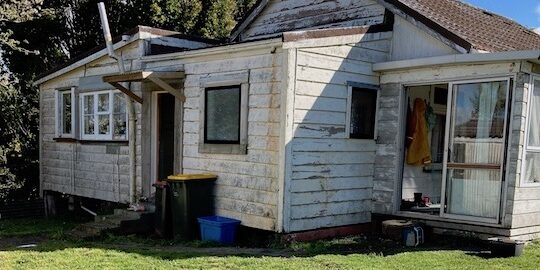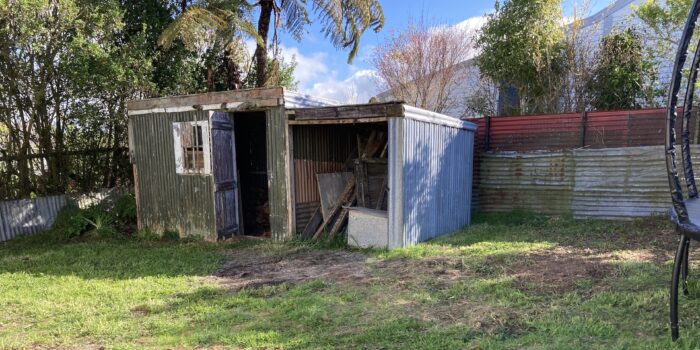How to NOT Go Over Budget: Unveiling 5 Overlooked Budget Categories
Budgeting is the corner stone of good financial management. While it is not hard to do, a common problem when it comes to budgeting is just simply forgetting to take expenses into account! So I wanted to share 5 commonly overlooked budget categories you should keep in mind when writing yours down.
1. The Often Overlooked Emergency Fund
Many of us don’t have an emergency fund even though it is such an important part of financial wellbeing.
An emergency fund is money set aside for the infamous “rainy day”. Having one means that you are covered in the face of sudden large expenses (car breaking down) or even big life events (losing a job, relationship breaking down and having to find a new place to live etc.)
If you have enough money set aside these big sudden expenses won’t require going into debt to finance them, and knowing you are financially covered will reduce the financial stress you might experience.
But emergency fund isn’t necessarily the most fun or exciting thing to save for and many might not even know how important it is to have one!
So saving to have an emergency fund is one of the often overlooked budget categories!
(I have another blog post detailing how you can figure how much you need in your emergency fund, find it here.)
Once you know how much the total is you need in your emergency fund you can figure out how much you need to put aside for it.
When writing your budget, first consider your essential spending, then before any other savings goals or fun spending figure out how much set aside for emergencies every week/month!
Are you on a really tight budget and can’t really afford to put anything aside for emergencies? I’ve been there! Here’s some ideas on how to save an emergency fund without touching your main income.
2. Irregular Expenses: Taming the Budget with Sinking Funds
Let’s be honest, weekly and even monthly expenses are easy to remember and budget for.
It’s the irregular expenses that happen only once or a few times a year that have the potential to see us go over budget and struggle when they are due.
Examples could be once a year membership fees for hobbies or birthday presents (especially if you have kids and they get party invitations!).
A great way to manage these expenses is to use sinking funds.
Sinking funds are money set aside for a specific expense, and the purpose is to split the cost of those expenses over longer period of time to avoid having big bills a couple of times a year.
For example, if you know that you have a membership fee due in 3 months and it is $200, you can divide the cost by the number of weeks there are before it is due. For example, $200 divided by 12 weeks is about $17. This means if you set aside $17 per week for the next 12 weeks you’ll have $200 set aside by the time your bill is due!
For birthday presents you can estimate how many presents you will need to purchase in a given year, then sign an approximate budget for each person and sum it all up. There you’ll have your approximate yearly cost of birthday presents. Then you can divide it by weeks or months to know how much you need to set aside each week/month to cover all the presents.
You can have your sinking funds as a separate bank account, or use cash envelopes. For cash envelopes (as the name suggests) you take out the required amount out in cash and keep it in an envelope for later to use to separate it from other spending money.
You can have as many sinking funds as works for you. Personally I have a sinking fund for car expenses, medical, gifts, kids and myself. I have one account for all of them and a running tab in my phone notes to keep on top of how much is available in each.

3. Health Care Costs: One of the Easily Overlooked Budget Categories
Health care needs are usually unpredictable, which is why they are on my list of overlooked budget categories.
And we’re not talking about big things, like surgeries or hospital stays or anything like that. Just your usual GP appointments, dentistry, prescriptions, over-the-counter medicines, vitamins, alternative treatments and so forth.
The list of would go on if you had any additional needs such as prescription glasses or a chronic condition.
These types small costs can also start to add up, and they can unexpectedly have you go over budget. Which is why it would be wise to have them in mind you are budgeting.
A great way to deal with health care costs is to have a sinking funds for them.
Spending in this category can be really hard to estimate, so you may decide that you put something small towards it every week, this way you will have some back up money when something does happen.
For example you put $10 per week aside into your health care sinking fund just in case. Then 6 months later your tooth starts to hurt and you need a dentist appointment which costs $150. Putting $10/week aside for 6 months has resulted in you having $240 set aside for medical needs and your urgent dentist appointment is fully covered by it and your budget remains unaffected.
The beauty of sinking funds and being prepared!
4. Home Sweet Home: The True Cost of Home Ownership
In New Zealand home ownership is the ultimate goal for many. And while it does bring a certain sense of freedom with it, it is not without its own costs.
When considering renting vs owning, often the only costs discussed are rent vs mortgage.
But the mortgage isn’t the only cost of owning your own home. Other additional, but predictable, costs would be rates and possibly water, depending where you are located.
The unpredictability comes from maintenance costs. Now you might say, well I have an insurance! But insurance doesn’t cover everything, and you will also have an excess to think about.
For example, your insurance may cover something breaking, let’s say a window (as long as it was accidental!), but it won’t cover regular wear and tear that just needs to be replaced, like an old leaky roof.
Now how much you might need to spend often depends on the age of your home. If it is new, you wouldn’t expect any major repairs any time soon. But if it is on the older side it would be wise to be aware when anything maintenance was done to the house before buying so you know what might be ahead.
It might be hard to have money set aside for major renovations, especially if they happen unexpectedly. But having an idea of timeline when you expect that things need fixing or need to be replaced can help you plan and prepare.
While you can of course save money on a savings account, there might be mortgage structure options that you may want to consider. For example if you have a revolving credit mortgage, you pay your mortgage but are able to withdraw what you have paid back again, for example to cover maintenance costs.
(Make sure you get proper advice on a revolving credit mortgage and you understand the pros and cons fully before getting one.)
Sudden home maintenance needs can by the way be those big sudden expenses you might need to cover with your emergency fund. A great reason to have an emergency fund!

5. Transportation Expenses: Beyond Fuel and Car Payments
In traditional sense cars are considered assets. They are something you own that have value. This is of course true.
But with a car comes a whole heap of expenses too, which makes it a liability from another point of view.
Now the obvious expenses are fuel and if loan payments if you took out a loan to pay for one.
Then you should consider insurance costs, yearly (or 6 monthly) Warrants of Fitnesses and registrations.
Now these are all predictable and as long as you remember to set money aside for WoFs and registrations you’ll be pretty good.
But like with a house, a car needs to be well maintained with servicing to stay in good condition, and occasionally something needs to be replaced or repaired.
And that’s when things can get expensive!
For example, in my last WoF (I had the money aside for it) I was told I needed 4 new tyres and there was a broken part that needed replacing.
4 new tyres were $500 at the cheapest and my partner estimated that a mechanic might charge around $600 for replacing the part. Ouch!
Luckily my partner is a car person and was able to source a new part and do the labor himself plus found some tyres cheaper in Auckland for me, so it ended up costing “only” $410 for all of it and my car got a WoF.
For the big o-ou repairs you can of course use an emergency fund, but you could also keep a sinking fund for car maintenance for the smaller things.
Since these costs are unpredictable you could treat it similarly to the health care sinking fund and just decided a sum you put aside every week to use when you need it.
Conclusion
There are many overlooked budget categories which can easily derail even the best and well-thought out budget.
Going over budget again and again can leave you frustrated and feeling like you are not good at budgeting and that it is not for you.
Even though all you need to do is to tweak it a little bit and take some overlooked expenses into account!
Do you budget? Are there any expenses that you forget to budget for? Let’s chat in the comments!
PS. I’m running a personal finance book giveaway for those who have subscribed to my newsletter! Sign up here to get the details on how to enter!







